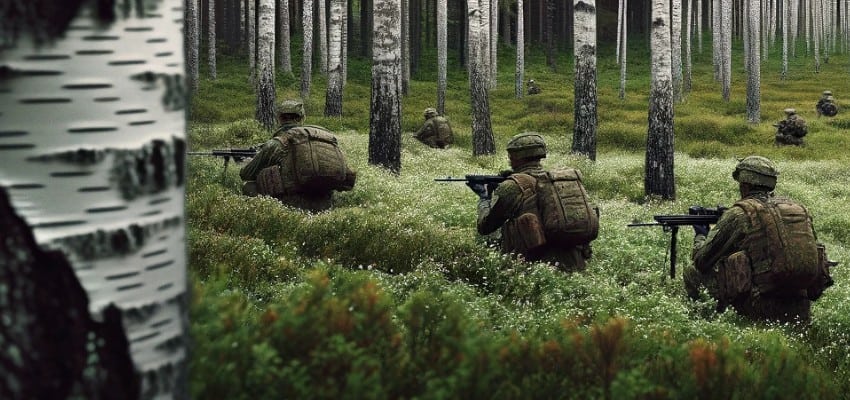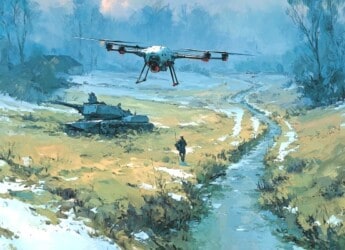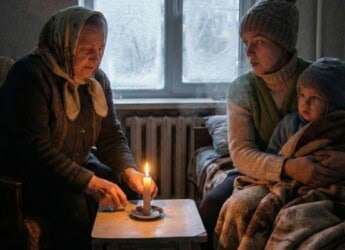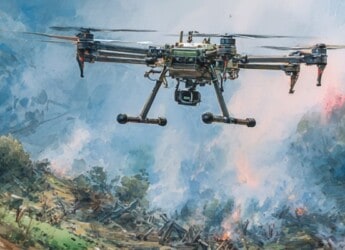Source Note: One of the most accurate and detailed sources for ongoing updates on the Ukraine crisis is the Russian Offensive Campaign Assessment from the Institute for the Study of War. The Institute for the Study of War (ISW) is a 501(c)(3) organization and produces strictly non-partisan, non-ideological, fact-based research. ISW seeks to promote an informed understanding of war and military affairs through comprehensive, independent, and accessible open-source research and analysis. ISW’s research is made available to the general public, military practitioners, policymakers, and media members. Providing a daily synthesis of key events related to the Russian aggression against Ukraine, ISW updates may benefit investigators and litigators as they follow the business, information technology, and legal trends and trajectories impacted by and stemming from the current Russo-Ukrainian conflict.
For those seeking to grasp the full scope of this evolving landscape, the complete updates from the Institute for the Study of War serve as an invaluable resource.
Content Assessment: From NATO Exercises to Russia's Global Ambitions: Eastern Europe in the Spotlight (January 18-19, 2024)
Information - 92%
Insight - 90%
Relevance - 88%
Objectivity - 92%
Authority - 94%
91%
Excellent
A short percentage-based assessment of the qualitative benefit expressed as a percentage of positive reception of the recent synthesis of reporting from the Institute for the Study of War on the Russo-Ukrainian War.
Russo-Ukrainian Conflict Update*
NATO Exercises to Russia’s Global Ambitions: Eastern Europe in the Spotlight
ComplexDiscovery Staff
As January 2024 progressed, the geopolitical landscape in Eastern Europe was marked by intensified military and diplomatic activities. A significant aspect of this period was Russia’s disinformation campaign against NATO’s “Steadfast Defender 2024” exercises. While NATO’s exercises were a defensive response to ongoing Russian aggression, Russia’s narrative aggressively framed these as provocative actions, contradicting NATO’s actual defensive posture. This misrepresentation is part of a broader Russian strategy to discredit NATO and justify its aggressive stance in the region.
The strategic implications of Ukraine potentially committing to defensive operations throughout 2024 have become a focal point of discussion. Adopting a defensive stance could allow Ukraine to conserve resources for future counteroffensives. However, this approach risks ceding the strategic initiative to Russia. It could lead to Ukraine being drawn into costly defensive battles, undermining its long-term military efficacy and leaving it vulnerable to Russian advances.
A key feature of this period has been the technological arms race in the Ukrainian battlespace. Both Russian and Ukrainian forces have been rapidly adapting and innovating, particularly in areas of drone warfare and electronic warfare systems. These developments indicate a shift in modern warfare tactics, where technological superiority can significantly influence battlefield outcomes.
France’s initiation of an “artillery coalition” to support Ukraine is a crucial development. This coalition, co-chaired with the U.S., aims to bolster Ukrainian artillery capabilities against Russian forces, which have demonstrated superior artillery firepower. This international coalition underscores the global community’s involvement in the conflict and the importance of artillery in current military engagements.
In terms of foreign policy, Russia’s unwavering stance, as stated by Russian Foreign Minister Sergei Lavrov, remains a concern. Lavrov’s statements underscore Russia’s disinterest in negotiations and its persistent objectives in Ukraine, dismissing Ukrainian sovereignty. This stance highlights Russia’s determination to pursue its goals in Ukraine, despite international condemnation and ongoing peace efforts.
The period also witnessed significant GPS disruptions across Poland and the Baltic region. These disruptions, potentially caused by Russian electronic warfare operations, have sparked concerns about Russia’s capability to impact critical infrastructures and services in Europe. Such disruptions not only have military implications but also affect civilian life, showcasing the broader impacts of modern warfare.
The European Union’s response to Hungary’s veto against further military assistance to Ukraine, potentially leading to the suspension of Hungary’s voting rights, reflects the EU’s commitment to a united front in supporting Ukraine. This move emphasizes the EU’s intolerance towards actions that undermine collective efforts to support Ukraine against Russian aggression.
Russia’s negotiations with the Central African Republic regarding the establishment of a military base there represent a strategic expansion of Russia’s global military footprint. This move into Africa is indicative of Russia’s broader ambitions to strengthen its global presence and influence, particularly in regions where Western influence is limited.
Domestically, Russia has implemented significant policy changes, particularly concerning the management of migrant activities and the legal protection of Russian properties abroad. These policy shifts are part of a larger strategy to reinforce the Kremlin’s control within Russia and extend its influence internationally. Such measures are indicative of Russia’s efforts to consolidate power and control amidst the ongoing conflict.
The events of January 18 and 19, 2024, in Eastern Europe present a complex tapestry of military, diplomatic, and technological developments. From the Russian disinformation campaign against NATO exercises and the strategic debates in Ukraine to the EU’s stance against Hungary and Russia’s expansion into Africa, these events highlight the multifaceted and dynamic nature of the conflict. The technological advancements in warfare, the implications of electronic warfare, and the international community’s response to these developments underscore the evolving nature of modern conflict and its broader implications for regional and global stability.
News Sources
- Institute for the Study of War (understandingwar.org)
- From Diplomatic Strides to Warehouse Blazes: A Concise Look at the Russo-Ukrainian Conflict (January 12-13, 2024)
As a leading source for cybersecurity, information governance, and legal discovery insights, including international investigations and litigation, ComplexDiscovery OÜ recognizes the importance of awareness regarding alleged and documented criminal acts, particularly in the context of the Russia-Ukraine conflict. While we, following the lead of the Institute for the Study of War (ISW), do not provide detailed coverage of war crimes in our primary reports, we encourage professionals within the eDiscovery ecosystem to stay informed about these activities. This awareness is crucial for understanding potential future legal actions and responsibilities.
Detailed Reporting with Maps for January 19, 2024, from the ISW – Mouseover to Scroll
2024-01-19-PDF-Russian Offensive Campaign AssessmentReview the Detailed Reporting and Maps PDF
About the Institute for the Study of War Research Methodology
ISW’s research methodology relies on both primary and secondary sources, enabling researchers to develop a comprehensive understanding of the situation on the ground. In order to analyze military and political developments in any given area, ISW’s research analysts must wholly understand the systems of enemy and friendly forces. They must also understand the population demographics, physical terrain, politics, and history of that area. This lays the analytical foundation for understanding the reasons for particular developments and fulfilling their assigned research objectives. ISW analysts also spend time in places like Iraq, Afghanistan, and elsewhere in order to gain a better understanding of the security and political situation and to evaluate the implementation of current strategies and policies. Our researchers compile data and analyze trends, producing a granular analysis of developments in areas of research, producing an accurate, high-resolution, timely, and thorough picture of the situation. ISW’s research methodology guarantees its success and commitment to improving the nation’s ability to execute military operations, achieve strategic objectives, and respond to emerging problems that may require the use of American military power.
About the Institute for the Study of War
The Institute for the Study of War advances an informed understanding of military affairs through reliable research, trusted analysis, and innovative education. We are committed to improving the nation’s ability to execute military operations and respond to emerging threats in order to achieve U.S. strategic objectives. ISW is a non-partisan, non-profit, public policy research organization.
Learn more, get involved, and contribute today.
Additional Reading
- From Dissent to OSINT? Understanding, Influencing, and Protecting Roles, Reputation, and Revenue
- [Annual Update] International Cyber Law in Practice: Interactive Toolkit
- Data Embassies: Sovereignty, Security, and Continuity for Nation-States
Assisted by GAI and LLM Technologies
* Sourced and shared with direct express permission from the Institute for the Study of War (ISW).
Source: ComplexDiscovery



























